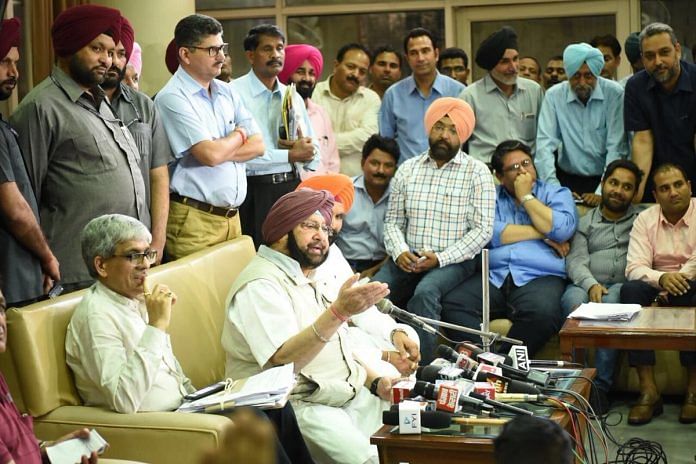Currently, student bodies are run by those chosen by the university/college management and staff. Local gangsters sometimes have an influence too.
Chandigarh: The Punjab government Tuesday lifted the 34-year-old ban on student body elections in the state, which was imposed in 1984 when militancy-driven turmoil had peaked following Operation Blue Star.
The move, announced by chief minister Captain Amarinder Singh, comes a month after the Haryana government lifted a 22-year-old ban on student body elections. The CM was replying to the governor’s address to the budget session of the state assembly.
The gangster element
Currently, student bodies in universities and colleges in Punjab are run by students chosen by the university/college management and staff, and in some cases, by those announced as student leaders with the support of local gangsters.
“We will set the gangsters right. They will not be allowed to interfere in these elections,” the CM said at a press conference later in the day.
Kuljit Nagra, Congress MLA from Fatehgarh Sahib, who was president of the Chandigarh-based Panjab University’s student council, said elections would rid the student bodies of the influence of gangsters and goonda elements. He said gangsters had managed to gain control over the student bodies because of the vacuum created by not having elections.
When asked about the possibility of increased violence in the wake of the elections, Nagra said maintaining law and order was the duty of the state police. “Democratic processes cannot be banned just because there is a fear of violence. Should we stop conducting assembly elections just because there is a fear of criminals?” he said.
What’s happened in the interim?
Elections to all universities and colleges across the state, including the Panjab University and its affiliated colleges in Chandigarh, were banned in 1984. The ban was partially lifted in 1992 when, after a long-running agitation in Panjab University, elections were allowed to be held; however, these were indirect elections where class heads chose the college councils and the department heads chose the student councils in the university.
In 1996, these elections were made direct, and voting started for the university council and colleges councils. The system has continued since in Chandigarh city.
What format will be adopted now?
Nagra said in the first year of elections (2018-19), the various universities will be given a free hand to choose whichever method of elections they feel can be held. “It could be direct or indirect, depending on what the universities decide. It could also vary from one university to another,” he said.
Nagra said lifting of the ban is the result of a long-standing demand by students. “It does not suit traditional politicians who run regimes through dynasties to hold student elections where a fresh and new crop of leaders can emerge and topple them,” he said.
In Haryana, the BJP-led Manohar Lal Khattar government announced it would student elections in the next academic session, fulfilling one of its poll promises. Elections were banned in the state in 1996 by the Bansi Lal government.



